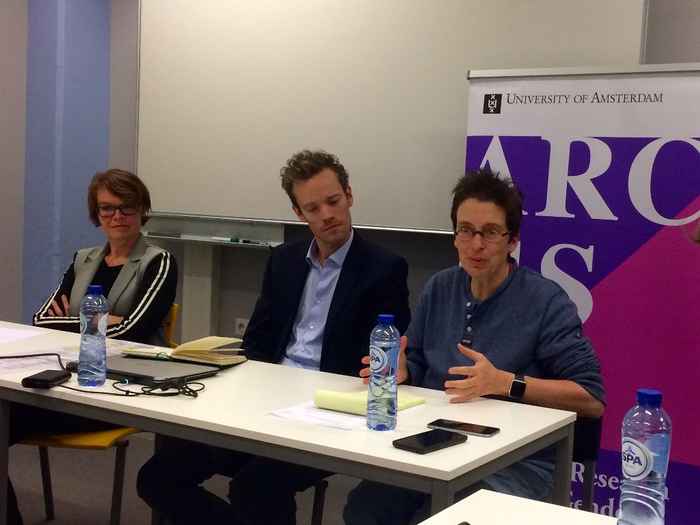ARC-GS Lecture Series: Roundtable Sexuality @ UvA
By Anne Louise Schotel
Sexuality is a topic that transcends the boundaries of scientific disciplines and methodologies, but actually crossing methodological boundaries and reaching mutual understanding between researchers who are embedded in different disciplinary paradigms is no easy task. Dr. Wouter van Gent, urban geographer, Dr. Rachel Spronk, cultural anthropologist and Dr. Henny Bos, educational scientist discussed challenges and opportunities in the study of sexuality in an ARC-GS roundtable on 17th November.
